
By Michael Bradley
.
In the aftermath of the Lindt Café siege, local Sydney businesses were sweating on whether the event would be deemed a “terrorism event” by the Federal Government, because of the implications for their lost business insurance coverage.
Outside that legal nicety, the Prime Minister and his supporters in the media were keen to label Man Haron Monis a terrorist.
In Paris, the massacre at Charlie Hebdo and the related siege at a kosher delicatessen were more obviously politically motivated acts of terror, meeting the classical definition of terrorism and appropriately given that label.
There is general agreement that we are entering a period where attacks of this kind will be more frequent, more random and more distributed. They have a general source, a streak of radical Islamic ideology that may not have any legitimacy and that is anyway clearly disavowed by almost all Muslims, but which nevertheless exists and is causing a lot of trouble.
This is a significant shift from the post 9/11 decade, when we expected and defended against large-scale terrorist attacks such as those in Bali, Madrid and London. For those of us who remember, it is strongly reminiscent of a much earlier time, when “terrorism” first entered the consciousness of modern Western society.
This was the 1970s.
For a large part of that decade, well-organised, ideologically driven and utterly ruthless terrorist groups held the West in horrified thrall as they bombed and shot up airports and pubs, kidnapped and murdered politicians, hijacked planes and cruise ships and, most famously, turned the 1972 Olympics into a bloodbath.
They acted in large groups with clear political aims like the PLO, ETA and IRA, and in small terror cells with more anarchic goals such as the Red Brigades and Baader Meinhof Gang. What they had in common was a commitment to using extreme violence as a means to achieving their various ends.
It was a terrifying time. The existential fear was that Western society was coming apart at the seams. However, the moment passed, the terrorist activity quieted and ultimately almost disappeared (for a while), and yet none of the terrorist groups had attained their goals.
So, practically, there’s nothing new about this. We’ve seen wide-scale terrorism before. And it will not succeed, any more than it did at any other time, simply because too few of us want to kill and most of those who do will tire of it or die violently themselves. Shooting people has never been a very effective way of getting them to agree with you.
But something is different this time around. What we now have, which we didn’t in the 1970s, is a structure of executive government built around terrorism that stands outside the criminal law. Its perceived legitimacy is a problem for all of us.
In the 1970s, Western governments treated and responded to the actions of the various terrorist groups as crimes. They did enlist the support of the military at times, and sensibly so, but when a group of men turned up at an airport and started shooting (as happened at Athens and Rome Airports in 1973), they were considered primarily to be the murderers of innocent civilians. In dealing with such events, often extra-judicial and military responses were deemed appropriate (for example, in 1976 when PFLP terrorists hijacked a plane and landed it at Entebbe Airport in Uganda, the Israel Defence Forces carried out the response and killed all the hijackers), which was not inconsistent with an approach grounded in criminal law enforcement. Sometimes hostage takers have to be shot, not as punishment but as the least-worst option.
In some of the most directly affected countries at the time, such as the UK and Italy, the first terrorism-specific laws were enacted, allowing for organisations to be proscribed as illegal and the exercise of extreme powers such as detention without trial. Their justification was expressed to be the same as that for wartime measures – that the IRA, for example, presented an existential threat to society. They were designed to be temporary, as an emergency expedient.
It can be argued that they were unnecessary and that a better approach would have been to extend the criminal law’s reach to give police and the courts sufficient power to attack and degrade the terror groups that were, after all, criminal conspiracies. It may be that the IRA, for example, had a political end goal, but its violent acts within the UK were crimes pure and simple.
The terrorism laws started the shift in focus from the act to the actor. But wanting independence for Northern Ireland could never properly have been a crime.
The temporary laws stayed on the books and languished until 9/11. Since then, “terrorism” has become its own classification. Not just for insurance purposes, but for whole rafts of special laws enacted to protect us from terror. Dozens of terrorism-specific laws were passed after 9/11, and we are in the middle of a new wave of such laws now, with several passed in Australia last year and more on the way. The justification for all of them is that terrorist acts require a response that the criminal law cannot provide.
Since 2001, we have heard much about the “war on terror”, as if you can wage war against a concept (you can’t). The language and usages of war are ill-adapted to terrorism, because war is a battlefield construct. Hence the knots the US and its allies tied themselves into in Afghanistan and Iraq, trying to have it both ways by treating their opponents as soldiers when it suited (while shooting at them) but not when it didn’t (prisoners of war can’t be tortured and have to be sent home when the fighting is over, not held captive in Guantanamo Bay forever).
Somewhere between the bright lines of war and criminal law, the shadowy concept of “terrorism” has now taken root. To combat it, our personal rights and freedoms all become commodities that can be traded for security. The trading calls are to be made not by us but by our governments, empowered mostly by laws we’ve allowed them to pass (but sometimes illegally, for example the US National Security Agency’s unlawful wiretapping of US citizens between 2001 and 2007).
We can be detained without charge, made subject to protection and suppression orders without explanation, prevented from travelling to certain places, arrested on our return, jailed for talking publicly about intelligence operations or saying supportive things about causes deemed to be those of terrorists, and our metadata can be accessed without a warrant. Soon it will all be kept for two years, by law.
All of this only exists because “terrorism” exists. We’re told that this entire monolithic structure of laws, agencies, powers and secrecy is absolutely necessary to protect us from the terrorists. But we’ve been through this before and, in the absence of this engulfing anti-terror structure, we survived. What could have stopped Man Haron Monis? And what difference stems from calling him just what he was: a disturbed man who committed a horrific crime?
Why, in the end, do we need a response to him that differs in any way from that which we level against a man who shoots up a shopping centre over an imagined grievance, or a man who kills his own family because he can’t cope with life?
Where the violence is more organised, the criminal law can respond. The US racketeering laws are an example of how institutional criminality can be attacked in an unconventional way, without resort to calling the concrete acts anything other than what they are: crimes.
The distinction between the act and its motivation can then be maintained. To be clear: desiring that there be an Islamic caliphate in the Middle East is not illegal, nor should it be. Killing people to achieve it is a crime. Adding the word “terror” only confuses the end with the means.
Michael Bradley is the managing partner of Marque Lawyers, a boutique Sydney law firm. View his full profile here.










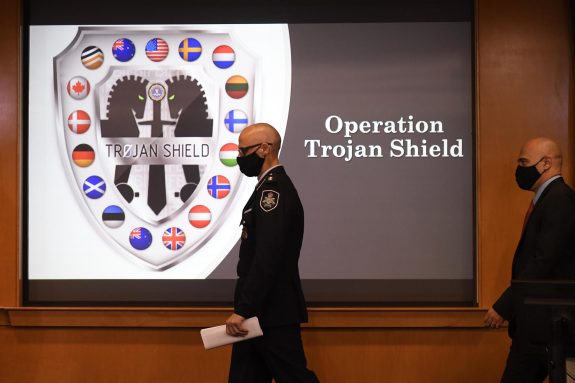


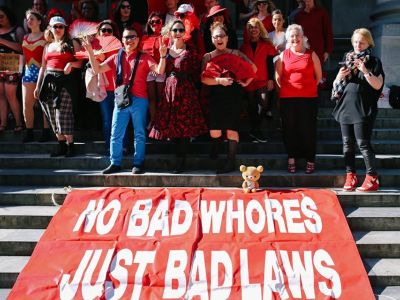

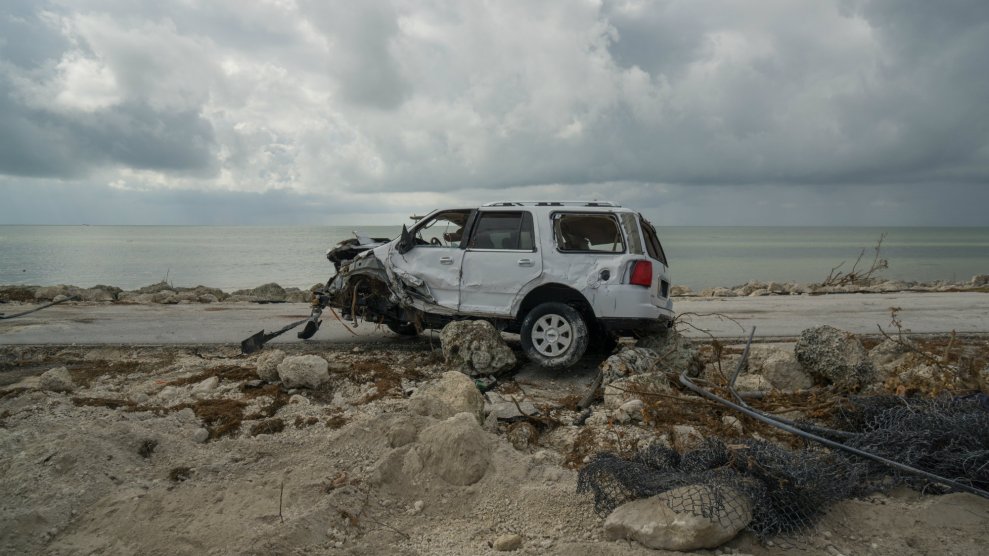
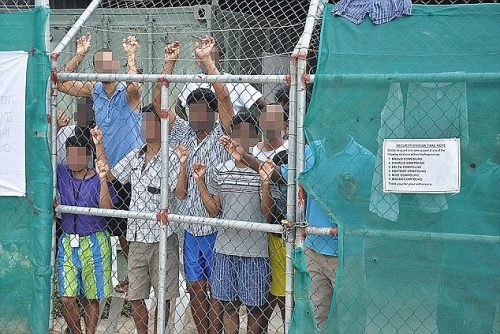



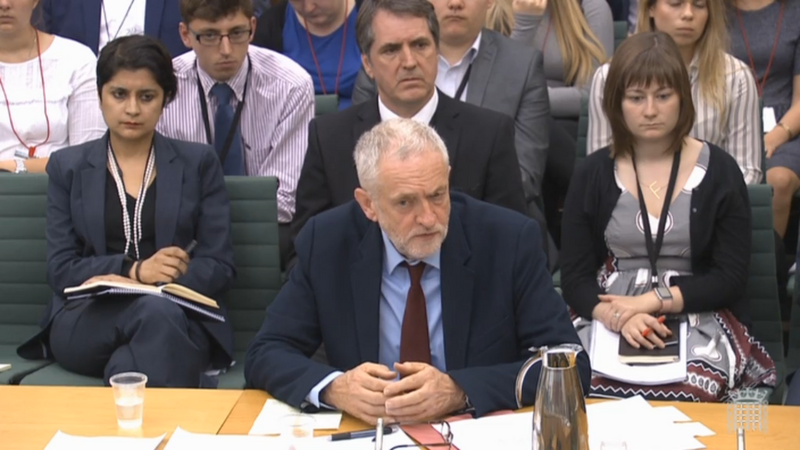




You must be logged in to post a comment.